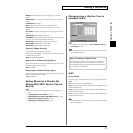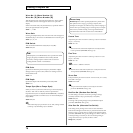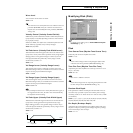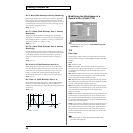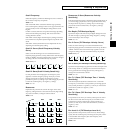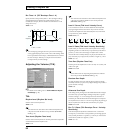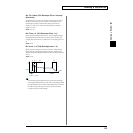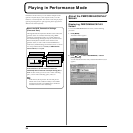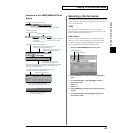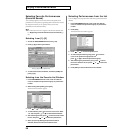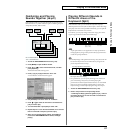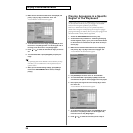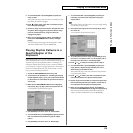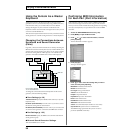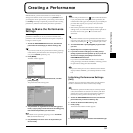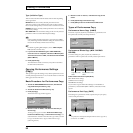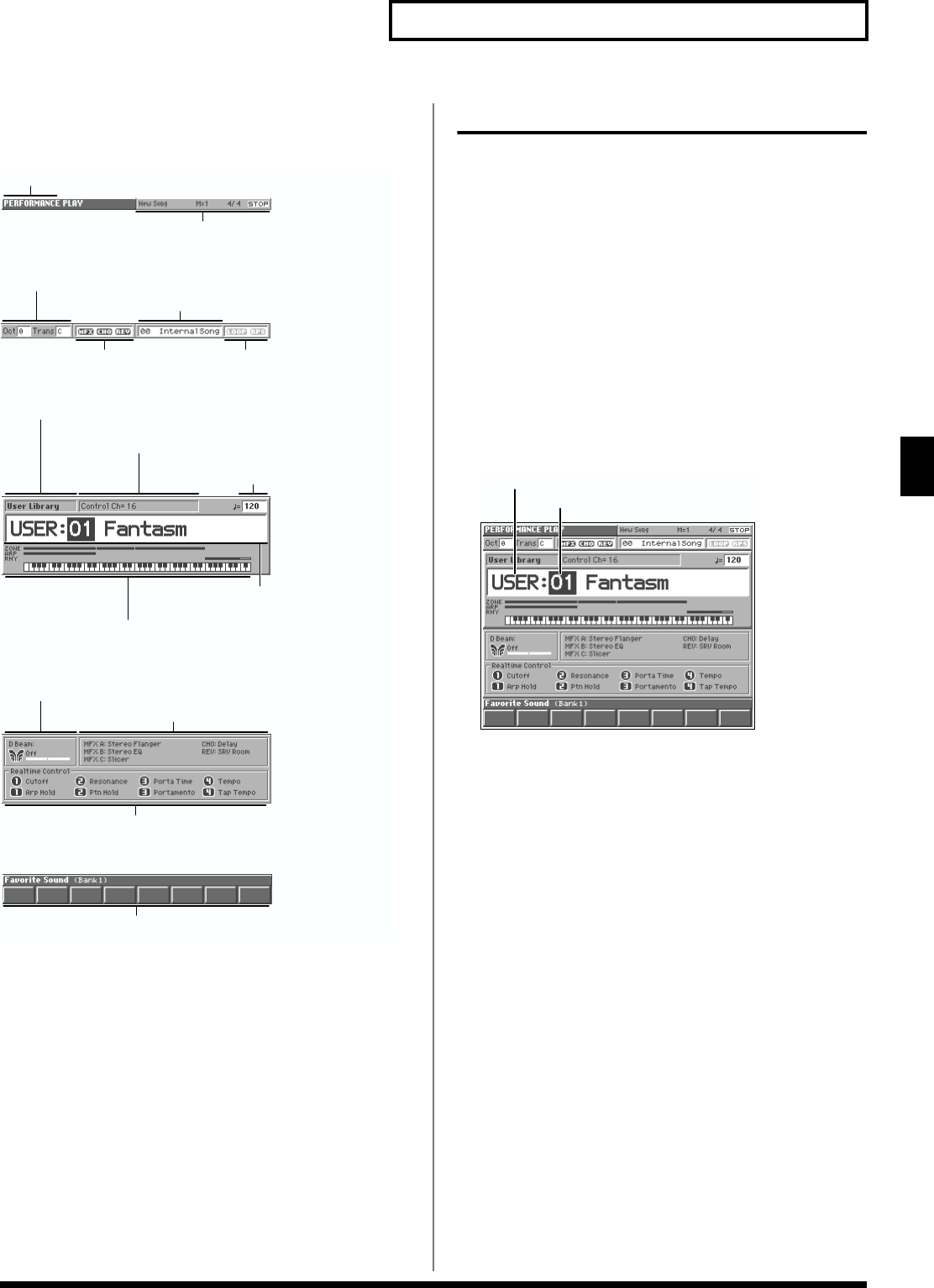
85
Playing in Performance Mode
Playing in Performance Mode
Functions in the PERFORMANCE PLAY
Screen
fig.05-02.e
Selecting a Performance
The Fantom has two performance groups, including the User group
and Preset groups, with each group storing 64 performances, for a
total of 128 performances.
USER
This is the group inside the Fantom which can be rewritten.
Performances you yourself create can be stored in this group. The
Fantom contains 64 preset performances.
PRST (Preset)
This is the group inside the Fantom which cannot be rewritten.
However you may modify the settings of the currently selected
performance, and then store the modified performance in User
memory. The Fantom contains 64 preset performances.
1. Access the PERFORMANCE PLAY screen (p. 84).
fig.05-03.e
2. Press [CURSOR] to move the cursor to the performance
group.
3. Turn the VALUE dial, or press [INC]/[DEC] to select a
performance group.
USER: User
PRST: Preset
4. Press [CURSOR] to move the cursor to the performance
number.
5. Turn the VALUE dial or press [INC]/[DEC] to select the
performance number.
Indicates the group of the selected performance.
Indicates the MIDI receive channel used for switching
performances from an external MIDI device.
This indicates the region that can be used for normal keyboard performance (ZONE),
the region in which arpeggios can be played (ARP), and the region in which
rhythm patterns can be played (RHY).
Indicates/selects the group, number,
and name of the selected performance.
Indicates the current sound generating mode.
Indicates the name of the currently selected song,
the measure location, the time signature, and the sequencer status.
Indicates the functions that are assigned to each
realtime controller knob (●) and button (■).
The value will be displayed when you turn the knob.
Indicates the names of the performances
that can be selected by [1]–[8].
Indicates the song file name.
Sets the Octave Shift (Oct)
and the Transpose (Trans).
Switches multi-effects (MFX),
chorus (CHO),
and reverb (REV) on and off.
Turns the RPS function on/off (RPS).
Turns Loop Play on/off (LOOP).
Indicates/sets the tempo at which the song,
Arpeggio or rhythm pattern is played.
Displays the type of effect used.
This indicates the function that is assigned to the D Beam controller,
and the response status of the D Beam controller.
Performance number
Performance group



